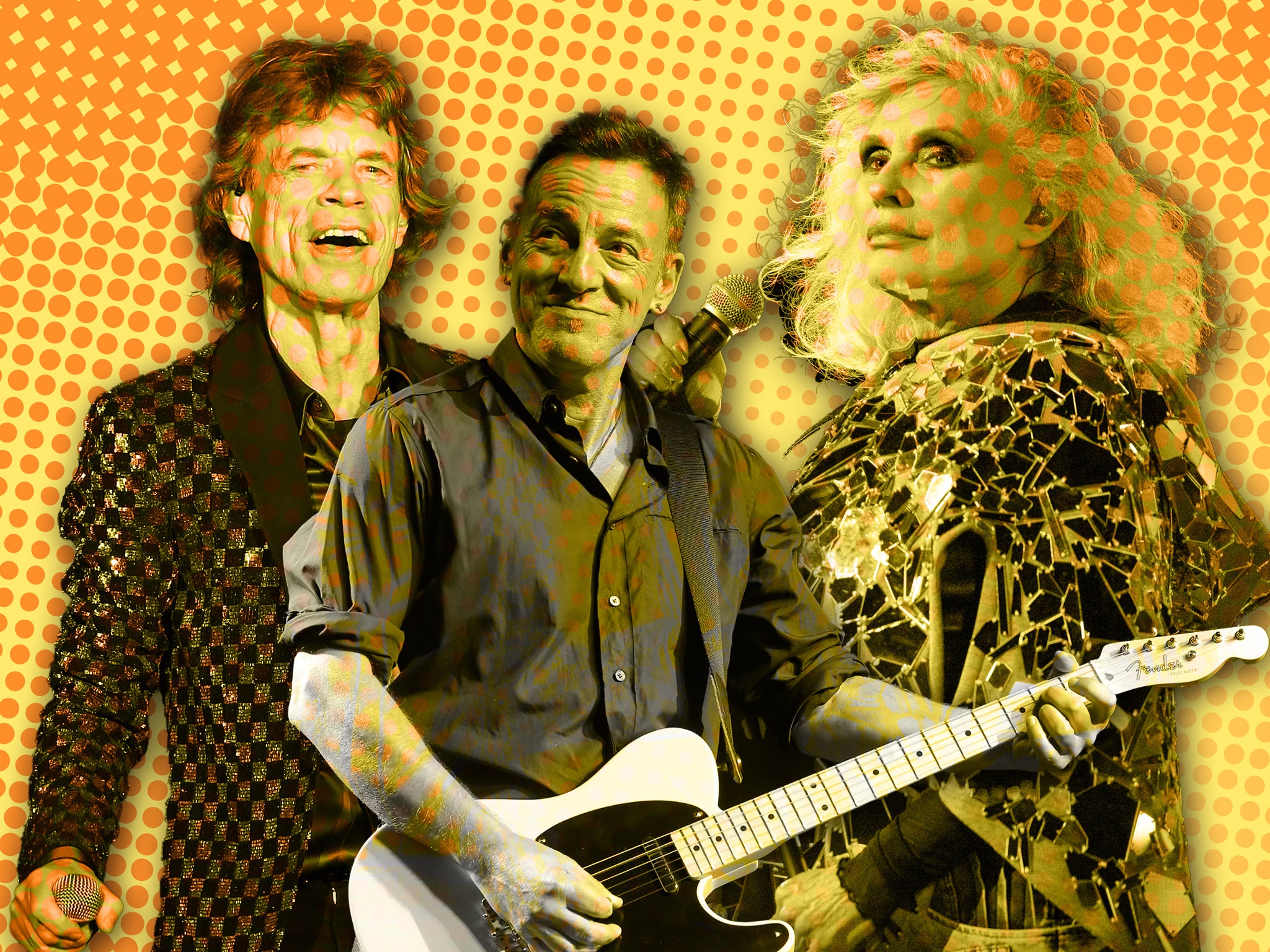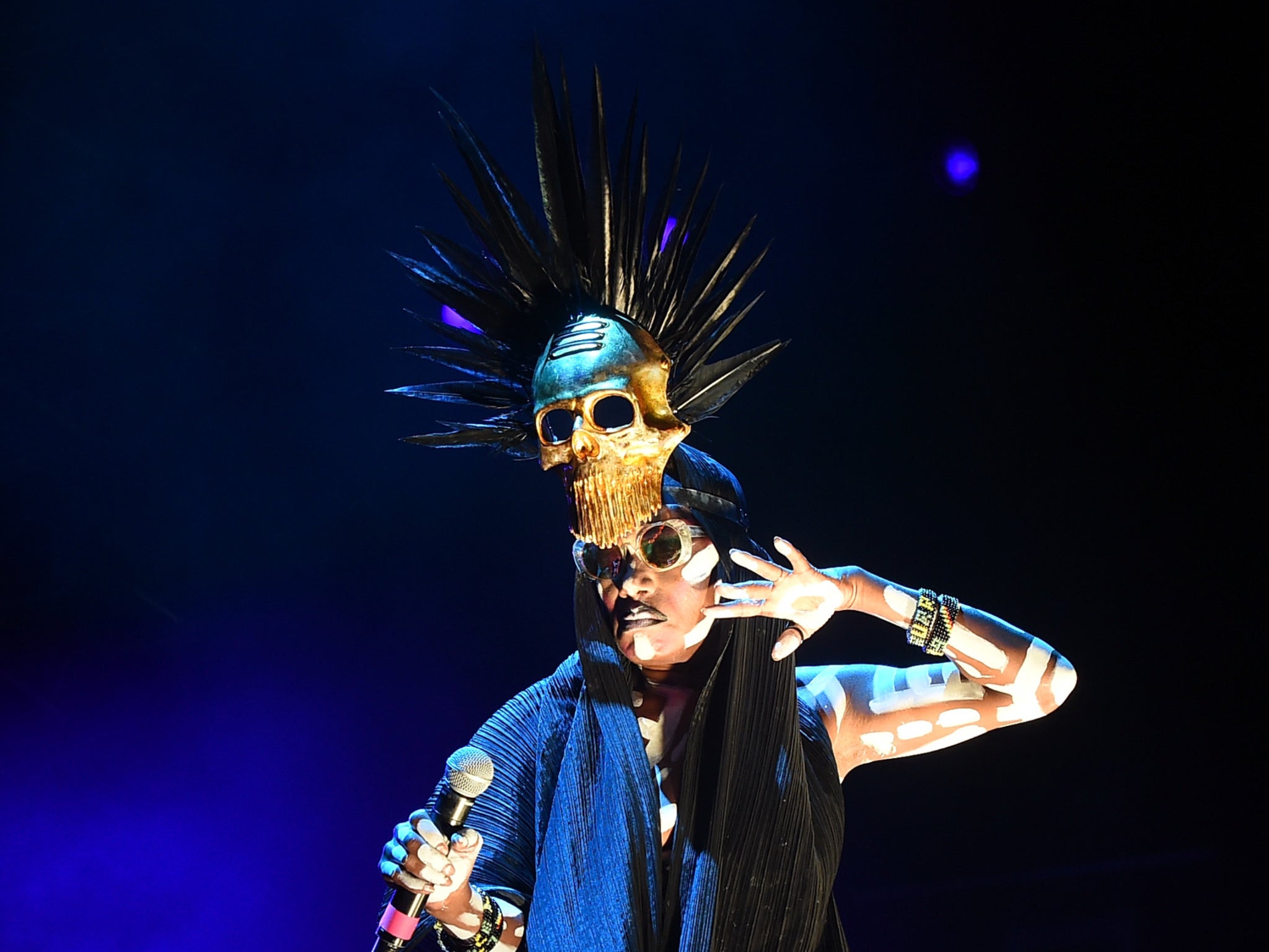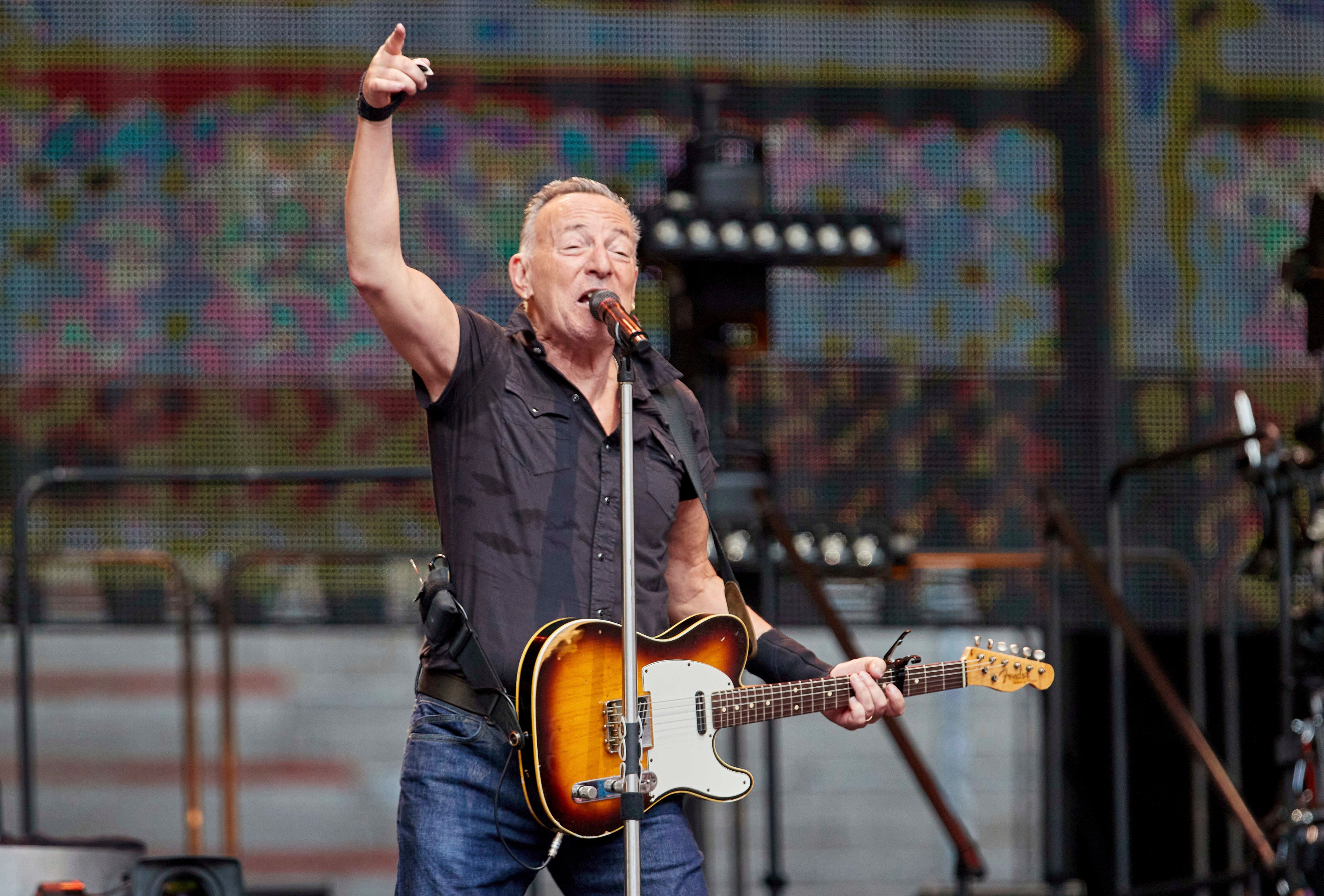Rock of ages: Why Bruce Springsteen and Mick Jagger never seem to grow old
Macca is going on tour at 81, Springsteen is hitting the road in his seventies, and Debbie Harry remains a force of nature on stage at 78. Ed Power explores the new norm for ageing rock stars in the era of the go-getting golden oldies

When Blondie’s Debbie Harry took the Glastonbury stage in June, wearing a vintage CBGB T-shirt and cyberpunk mirrorshades, she was a musical icon lit up in splendid technicolour. But as the post-punk legends blitzed through classics such as “Heart of Glass”, one fact quickly slid into the slipstream: that the group’s three founder members have a combined age of 219.
Nobody was making pensioner jokes or cracking wise about Zimmer frames. Weeks shy of her 78th birthday, Harry was as much a force of nature as when Blondie were imperious newcomers 40 years ago.
Famous musicians have been growing old for a long time. When millennials rediscovered Johnny Cash circa his 2002 cover of “Hurt” by Nine Inch Nails, the then 70-year-old’s grizzled melancholia was part of the charm. Here was an artist who had lived, loved, lost, and had the worry lines to prove it – a fact leaned into by Mark Romanek’s ennui-filled video.
But over the intervening two decades, something miraculous has happened. Age has become an irrelevance, particularly for top-tier rockers. Mick Jagger recently celebrated turning 80 with a starry bash at Embargo Republica nightclub in Chelsea. There, Leonardo DiCaprio and Lenny Kravitz were among those singing happy birthday. Just this week, Paul McCartney, still riding high from a triumphant 2022 headliner at Glastonbury, unveiled details of a new tour of Australia at age 81. In the Instagram post announcing the dates, he was fresh-faced and enthusiastic.
Macca’s comeback follows reports 73-year-old Bruce Springsteen is to extend his latest tour through to 2024. And it comes amid the release of a new live album by 79-year-old folk queen Joni Mitchell – recorded at her surprise 2022 comeback show at Newport Folk Festival. Mitchell, who had an aneurysm in 2015, remains frail and confined to a wheelchair. Yet at Newport, her voice still had that old hurricane punch.
These evergreen artists are a testament to the effervescent powers of rock ’n’ roll. If drugs and youthful excess don’t claim you – the fate that befell Rolling Stones founder Brian Jones, dead at 27 – life in the spotlight appears to confer a striking vitality. They can also be an example to the rest of us, say campaigners.
“Modern icons like Mick Jagger and Joni Mitchell are important because they confound traditional stereotypes of old age, demonstrating beyond any doubt that you can still be cool in your seventies, eighties and beyond – if that’s who you want to be,” says Caroline Abrahams, charity director at Age UK.
“Their cultural reach extends far beyond their own generation and hopefully this will not only bring people together regardless of age, it will also encourage us all to believe that age needn’t be a barrier to continuing to do what we have enjoyed all our lives.”
There’s a strange symmetry at work. In the 1960s and 1970s, The Beatles and the Stones changed our concept of youth culture. They grew their hair and wore their ties loose – sometimes they didn’t wear ties at all. Schoolgirls were thrilled, their parents scandalised. And the world tilted on its axis ever so slightly. Now, in their twilight, they’ve spun everything on its head. Raucous and resplendent, they’re making the years of wrinkles and dodgy hips look a blast.

“Old age ain’t what it used to be and that’s to be welcomed,’ says Abrahams. “It ought to be a time in our lives that we cherish because it brings with it the freedom that was often hard to find during our earlier years.”
“Too often old age is depicted in our ageist society as a time of frailty, decline, lack of independence and loss of competency,” agrees Dr Carole Easton, chief executive of the Centre for Ageing Better, an organisation that “aim to inspire and inform those in power to tackle the inequalities faced by older people”.
Far too often older people’s ambitions are curbed by the limits that society puts upon them.
“The extended careers of much-loved performers like Paul McCartney and Mick Jagger may well lead many individuals to reexamine their own thoughts and prejudices around getting older. They hopefully also act as inspiration to those within their generation who may have been told by society, or even thought to themselves, that they were too old to continue doing what they love. Far too often older people’s ambitions are curbed by the limits that society puts upon them.”
Jagger, in particular, has been combating prejudices around ageing for decades. Thirty years ago, for instance, the Stones were subject to what – in retrospect – was hilarious teasing about their supposed senescence.

“Rock ’n’ roll isn’t supposed to be an old man’s game,” declared LA Times in an article headlined “The Geriatric Stones”, when Mick, Keith and company rolled into California with their Voodoo Lounge tour in October 1994. Reviewing the same tour, Rolling Stone expressed astonishment at the Stones’ ability to “defy time”. Jagger was a decrepit 51 – 12 months younger than The National singer Matt Berninger today.
In 2023, nobody makes geriatric gags about musicians in their fifties. Thanks to the pioneering efforts of the Stones and their generation, we no longer think it unusual for musicians to carry on into mid-life and beyond.
Siouxsie Sioux sounded as magnificently scary as ever on a recent comeback tour undertaken at the age of 66. Robert Smith was, at 64, last seen putting the frighteners up Ticketmaster when railing against their “sickening” extra fees. When Bono arrives in Las Vegas for U2’s “Sphere” residency in October, the chatter will be about the new show, not the fact that rock’s grandest ego is 63. It isn’t that we’re gallantly pretending not to see his age – we don’t notice it in the first place.
Still, despite the acclaim heaped on Debbie Harry and Siouxsie, there is evidence attitudes towards ageing rockers diverge according to their gender. Just one female artist over 50 was asked to headline any of the UK’s top 20 music festivals this year, according to research by the Centre for Ageing Better.

“While Grace Jones [Camp Bestival] is the only female over 50 headlining any of the biggest UK music festivals this summer, solo acts or bands fronted by men aged 50 or above make up around a third of festival headliners included in the analysis – highlighting the twin forces of ageism and sexism,” the organisation states.
There was, it continued, a notable gulf between the under-representation of older female artists and the age profile of festivalgoers, with one in three of the latter over 40 and three in five attendees women.
“Once again we see an example where society’s age problem means there is no space or provision for older women,” said Easton. “In many aspects of public life, we see older women pushed to the margins.”
The other caveat is that rock stars at the Jagger and Macca level can access resources beyond the rest of us. Their healthy lifestyles are not easy to emulate. If you want to move like Jagger at 80, it helps if, like the Stones singer, you have a personal trainer for a three-hour daily workout. And an in-house chef who ensures your diet consists almost entirely of “fresh fruit and veg, whole grains, legumes, chicken and fish”.

“There are also millions in the UK, and billions worldwide, who do not enjoy the privileges of millionaire male rock stars to have the later life of their choosing,” says Easton.
“Wealth and where you live continue to strongly determine who gets to age well and enjoy a good quality of life and health in their seventies and eighties. While [they are] positive role models for what is still possible as we age, older rock stars should not be held up as examples of what all people of their age should be capable of. How we age is the result of the conditions we have lived in throughout our lives, conditions that are largely out of control of any individual.”
There is also the fact that you don’t become Mick Jagger without a laser focus on staying at the top. He brings that same ruthlessness to his health regime as to his performances. He is uniquely driven, even in rock music.
“It’s pretty well established he enjoys performing for the crowd, and the rush of adrenaline and endorphins that it undoubtedly still produces,” says Tim Lindsay of Rolling Stones podcast, Under the Radar. “Mick takes the job of preparing for the Stones’ tours really seriously, spending months in advance on getting in shape physically... I’m not the first to compare their entire operation to a military campaign. “
Still, while the rest of us are unlikely to find ourselves in Jagger’s position of musical field marshal, it’s hard not to think that we aren’t benefitting from the way he has challenged stereotypes around ageing. He and McCartney, Debbie Harry and Joni Mitchell show ageing can be the start of something, rather than the end. Even without a personal chef, that is a lesson we can carry into our lives.
Mick, Macca and the rest won’t escape the ageing process forever. But seeing them give it a run for its money is both a fantastic spectator sport and a corrective to the idea that growing old is something to dread. Watching Jagger, you could be forgiven for almost looking forward to it.






Join our commenting forum
Join thought-provoking conversations, follow other Independent readers and see their replies
0Comments